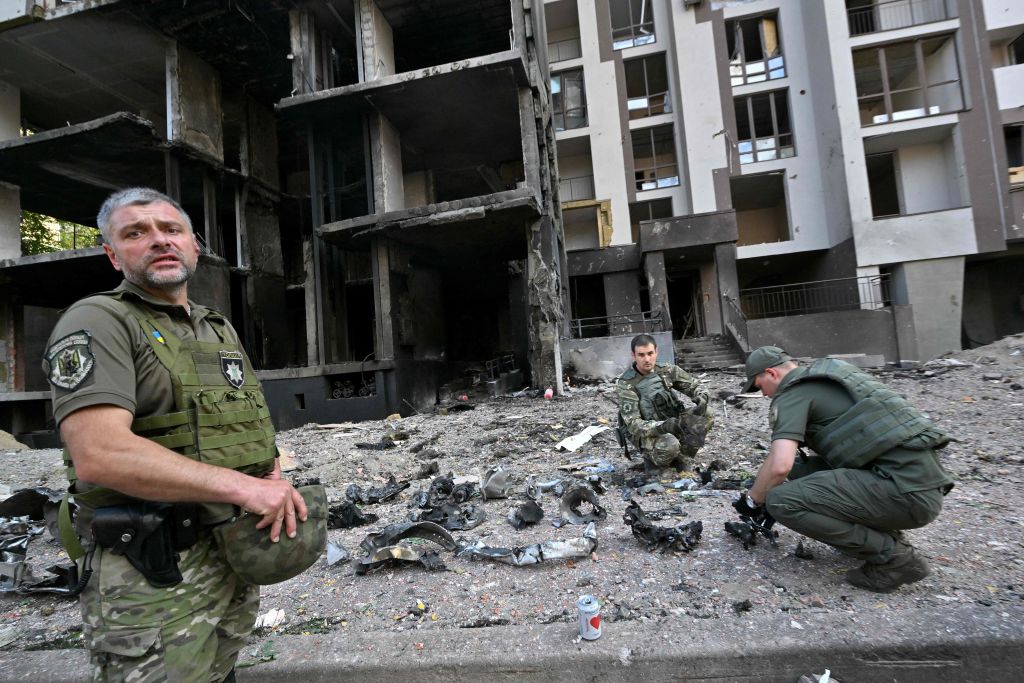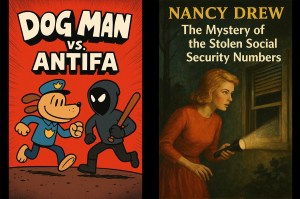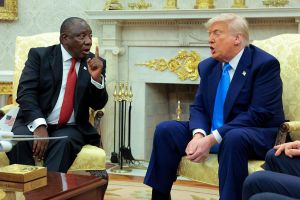Alex Drueke and Andy Huynh are two former American military members now in Russian custody, captured by the Russians in Ukraine, where they were fighting for the Ukrainian government. What is going to happen to them?
The most likely thing is that both men will eventually be traded to the US in return for captured Russians. Prisoners are very valuable and rarely wasted in executions unless those carry much more value than the prisoners held by the other side. The deal may be public or secret, and the US can expect to pay a premium. Israel usually releases ten or more Palestinian prisoners in exchange for one of its captured troops.
The problem for Drueke and Huynh is that the Russians will be in no hurry to make the exchange, knowing under the glare of American media the longer the “crisis” goes on the more desperate Biden will be to make a deal. (Much of the same can be said for Brittney Griner, the WNBA All-Star who clearly was in the wrong place at the wrong time with the wrong vape.)
A caveat: all bets are off if either Drueke and Huynh have any connection to the US government other than being former military, say as members of a CIA paramilitary group. You can assume most of their interrogation is aimed at that question.
Beyond that simple reality, what happens with Drueke and Huynh is extremely complicated. Much will be said about their status, whether they were volunteers (legal combatants) or mercenaries. A lot will be said about the rules of war, international law, the Geneva Conventions (treaties on the treatment of civilians and prisoners of war) and the like, without saying the obvious: there is no such thing as international law per se, a true body of agreed-upon rules subject to fair enforcement. Instead, much of what passes as “justice” in wartime is very much a victor’s justice, meted out for political purposes after one side wins enough to dictate what is a crime and what is a valid example of warfare.
The murder of civilians is generally a violation of rules of war, yet civilians are killed in every conflict. For example, in Ukraine a twenty-one-year-old Russian soldier was recently sentenced to life in prison after he pleaded guilty to shooting a sixty-two-year-old unarmed civilian four days into the invasion.
The issue scales poorly. The United States killed tens of thousands of innocent civilians in Hiroshima in a most horrible way, yet the action was seen as a brilliant strategy, not a crime. What in fact constitutes a “crime against humanity” or “attempted genocide” very much depends on who won the war and what they have to say about things. Even when the victor is clear, as in the Vietnam, Iraq and Afghanistan wars, there are no host country trials if that victor lacks the ability to enforce his will. It helps to think ahead; fearful its soldiers might be convicted of “political” war crimes during the War on Terror, in 2002 the US withdrew from the treaty establishing the International Criminal Court.
In the case of Drueke and Huynh, it may be useful politically for the Russians to hold trials, as a counter to those underway or planned in Ukraine. (Attorney General Merrick Garland visited Ukraine on Tuesday to meet with the country’s prosecutor general to discuss ways to “identify, apprehend and prosecute those individuals involved in war crimes and other atrocities in Ukraine.”)
Labeling Drueke and Huynh as mercenaries — soldiers of fortune who went into combat on behalf of a third party for the money — is as simple as Russia doing so. The men appear to have been paid something by Ukraine, and they were in fact in the country specifically to kill Russians. The US will argue, but is in no position to enforce, the idea they are lawful combatants, soldiers — as the rules of war kind of expect soldiers to be there for killing and it is seen as less a crime than a job duty.
We’ve already seen a likely preview of what’s ahead for Drueke and Huynh. Two British men were recently sentenced to death in a Russian proxy court for fighting for Ukraine. Shaun Pinner and Aiden Aslin were charged with “terrorism” in a court in the self-proclaimed Donetsk People’s Republic. The British case suggests the likelihood of some sort of show trial for the two Americans is high. Putin maintains the Ukraine war is really about Russia being threatened by NATO. Western prisoners, especially former American military prisoners, play into that narrative. Drueke and Huynh in his view are living examples showing how Ukraine is in a proxy war against Russia.
But as with the tussle over nomenclature, soldier or merc, the real problem for Drueke and Huynh is essentially that there is no law or even established practice governing mercenaries, guns for hire or “volunteers,” and recent examples are all unfavorable to their speedy and safe release.
There are few rules when dealing with mercs’ war crimes, as learned during the Nisour Square incident in Baghdad. On September 16, 2007, employees of the Blackwater Security Consulting private security firm opened fire on unarmed Iraqi civilians in Nisour Square in Baghdad under unclear conditions. The Iraqi government eventually found Blackwater had killed seventeen civilians. At the time, Blackwater had a $1 billion contract with the United States government to provide security services.
Four Blackwater staff were charged and brought to a civilian trial inside the US seven years after the killings and found guilty of offenses, from first-degree murder to firearms violations. No matter; in December 2020, Donald Trump pardoned the four Blackwater guards in a similar fashion to Richard Nixon’s pardoning of Lieutenant William Calley, known for his role in the My Lai massacre.
The other thing which bodes ill for Drueke and Huynh is America’s own example set during the years of the War on Terrorism. In one case, a western man caught fighting for the enemy in Afghanistan (John Walker Lindh, “the American Taliban” volunteer) was mistreated from his moment of capture, denied basic rights and eventually sentenced to twenty years in prison.
The other example is America’s willingness to classify captured al-Qaeda members as “noncombatants,” i.e., not soldiers but terrorists, and use that made-up category to allow everything from kidnappings and unlawful detentions (known then as extraordinary renditions) to the creation of an off-shore penal colony at Guantanamo Bay, where said noncombatants were either given show trials or simply tortured into insanity and indefinite detention.
It would be bitter, bitter fruit for the Russians to cite either example in their treatment of Drueke and Huynh.

























